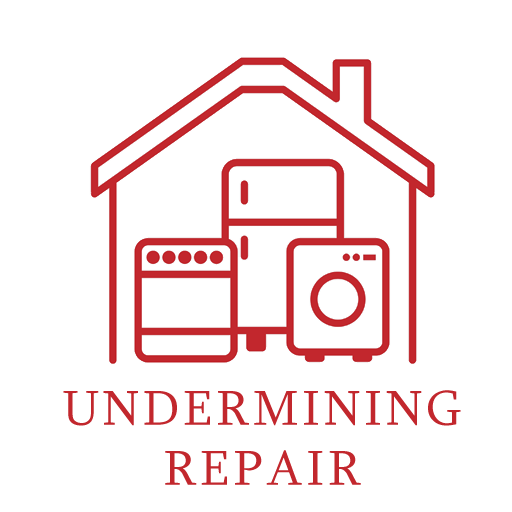Smart Appliances Are Diagnosing Themselves: How Long Island Homeowners Can Save Money on Repairs in 2025
The days of calling a repair technician only to have them spend an hour diagnosing what’s wrong with your appliance are rapidly coming to an end. Modern appliance repair services now harness the power of smart sensors, machine learning algorithms, and Internet of Things connectivity to diagnose problems before they evolve into costly breakdowns, with appliances becoming more self-sufficient with built-in diagnostic and maintenance features that can detect potential issues early on and alert you before they escalate.
For Long Island families juggling busy schedules and tight budgets, this technological revolution couldn’t come at a better time. This proactive approach not only helps prolong the life of your appliance but also saves you money on repairs by addressing problems right away.
The Rise of Self-Diagnostic Technology
Modern smart appliances function like sophisticated data centers disguised as everyday household equipment, with each device containing a constellation of sensors that continuously monitor temperature fluctuations, vibration patterns, electrical consumption, and mechanical stress levels, creating a real-time portrait of appliance health that’s more detailed than most medical examinations.
The diagnostic mode will put the appliance into a mode where it can run self-tests and display error codes, with the error codes being hidden messages from the appliance, pointing to specific problems. The GE appliances perform self-diagnostics and provides resulting data to the technician, allowing technicians to understand performance issues occurring within the appliance.
What This Means for Suffolk County Residents
Living in Suffolk County means dealing with the unique challenges of coastal humidity, temperature fluctuations, and the wear and tear that comes with Long Island’s climate. Climate influences the need for repair services, with Florida and the Southeast region, notable for the humidity and heat that degrade appliances, having the most significant share – a situation that Long Island homeowners can relate to during our humid summers.
One of the biggest trends for 2025 is the rise of smart appliances that seamlessly integrate into your home’s smart ecosystem, allowing you to control and monitor your devices through systems like Amazon Alexa, Google Home, or Apple HomeKit, with the ability to preheat your oven on your way home or getting a notification when your laundry is finished—all from your smartphone.
The Financial Benefits
Rising appliance prices and higher unemployment rates will likely shift decisions toward repair over replacement. This makes the self-diagnostic revolution even more valuable for Long Island families. By analyzing the data collected from IoT-connected appliances, manufacturers and repair technicians can identify patterns and trends that indicate potential failures, allowing for proactive maintenance, where repairs or part replacements can be scheduled before a breakdown occurs, minimizing downtime and costly repairs.
Consider this scenario: Your smart washing machine in Stony Brook detects unusual vibration patterns that suggest a bearing issue. Instead of waiting for a complete breakdown that might flood your laundry room, the appliance alerts you to schedule a simple bearing replacement – potentially saving hundreds of dollars in water damage and emergency repair costs.
How Smart Diagnostics Work in Practice
Many modern appliances come equipped with smart technology that allows them to interface with diagnostic apps, which can provide real-time data and error codes, enabling technicians to accurately diagnose issues without invasive inspections and often including troubleshooting guides, making the repair process more efficient.
Samsung washing machines and dryers have a feature called Smart Install that will run a few quick diagnostics if you are experiencing any issues, with the appliance performing a series of tests and providing additional information if there is a problem.
When Professional Help is Still Needed
While smart diagnostics are revolutionary, they don’t eliminate the need for professional repair services entirely. The diagnostic mode is valuable but not intended to replace professional repair services, and if you are trying to figure out what you are doing or encounter complex issues, it is always best to contact a qualified technician.
This is where the expertise of Long Island service professionals becomes invaluable. When your smart appliance has diagnosed the problem, local technicians can arrive prepared with the right parts and knowledge, making repairs faster and more efficient than ever before.
The Disposal Dilemma
Even with advanced diagnostics extending appliance lifespans, there comes a time when replacement is more economical than repair. When that moment arrives, Long Island homeowners need reliable appliance removal services to handle the safe and responsible disposal of their old units.
Professional removal services understand the environmental regulations specific to New York State and can ensure that refrigerants, metals, and electronic components are properly recycled or disposed of, protecting both your property and the Long Island environment we all cherish.
Looking Ahead: The Future is Now
As these systems continue evolving, they promise to transform our relationship with household appliances from one of reactive maintenance to predictive partnership, creating homes that care for themselves while keeping their human inhabitants informed and engaged.
For Long Island families, this means fewer unexpected breakdowns, lower repair costs, and appliances that work harder to fit into our busy lifestyles. The smart appliance revolution isn’t coming – it’s here, and it’s making life easier for Suffolk County residents one diagnostic alert at a time.
Whether you’re in Stony Brook, Smithtown, or anywhere across Long Island, embracing smart appliance technology and understanding how self-diagnostics work can save you time, money, and the frustration of unexpected appliance failures. The future of appliance ownership is proactive, intelligent, and designed with your convenience in mind.
